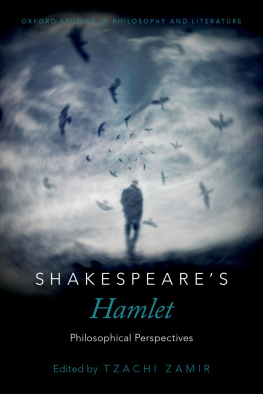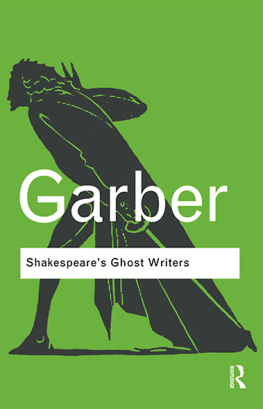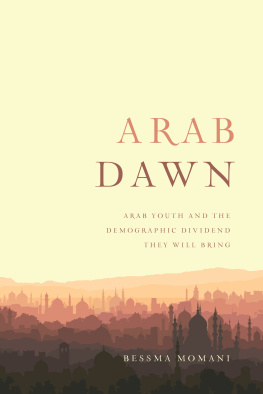Hamlets Arab Journey

SERIES EDITOR EMILY APTER
A list of titles in the series appears at the back of the book.
Margaret Litvin
HAMLETS ARAB
JOURNEY
Shakespeares Prince and Nassers Ghost

Copyright 2011 by Princeton University Press
Published by Princeton University Press, 41 William Street,
Princeton, New Jersey 08540
In the United Kingdom: Princeton University Press,
6 Oxford Street, Woodstock, Oxfordshire OX20 1TW
press.princeton.edu
All Rights Reserved
Library of Congress Cataloging-in-Publication Data
Litvin, Margaret, 1974
Hamlets Arab journey : Shakespeares prince and Nassers ghost / Margaret Litvin.
p. cm. (Translation/transnation)
Includes bibliographical references and index.
ISBN 978-0-691-13780-3 (alk. paper)
1. Shakespeare, William, 15641616. Hamlet. 2. Shakespeare, William, 15641616AppreciationArab countries. 3. Shakespeare, William, 15641616Translations into ArabicHistory and criticism. 4. Hamlet (Legendary character) 5. Heroes in literature. 6. Politics in literature. 7. EgyptCivilizationEnglish influences. 8. Arabic dramaEgyptHistory and criticism. 9. Arabic drama20th centuryHistory and criticism. I. Title. II. Series.
PR2807.L63 2011
822.3'3dc22 2011005331
British Library Cataloging-in-Publication Data is available
This book has been composed in Adobe Caslon Pro
Printed on acid-free paper.
Printed in the United States of America
10 9 8 7 6 5 4 3 2 1
For Gary and Maria Litvin
CONTENTS
ILLUSTRATIONS
FIGURES
TABLES
PREFACE AND
ACKNOWLEDGMENTS
Hamlet is a wonderful gathering place for an intercultural conversation. Almost everyone has something to say about it, and what they say tends to be almost directly about themselves. Critics have long known that every nation beholds its visage in Shakespeares mirror,
When I first read Hamlet as an American high school student, I found it quite obviously a play about individual consciousness. Hamlets character dwarfs the plot. He loathes the petty intrigues and vendettas of a phony court. He feels burdened not only by his embarrassing mother and stepfather but by the very flesh (be it solid or sullied) that houses and limits him. His closest literary relative is either Stephen Daedalus or Holden Caulfield.
The Hamlet I studied as an undergraduate sharpened but basically confirmed this early reading. I saw that each of the plays three older male characters (the Ghost, Claudius, and Polonius) has a script in which he wants to cast Hamlet, a theatrical use to which he would put him. But Hamlet strives to fight off these secondhand scripts; his consuming desire is to direct a production of his own. The struggle over who will define Hamlets character, who will write the script he must read, provides the plays sustaining tension.
I was surprised, then, when Soviet-migr relatives and friends started telling me that for them Hamlet is just as obviously a play about justice. They had come to know Hamlet in the Russia of the late 1960s and 70s, where the individuals struggle for autonomy was understood in relation to the political demands of a totalitarian state. In this context Nietzsches quarrel with Coleridge
It became clear that our respective communities of interpretation had shaped our readings of the play. Our Hamlets, having grown up in different societies, are different men.
The Hamlets one meets in Arab countries are different again. They grew up playing with many of their cousins from the United States, Western and Eastern Europe, and the Soviet Union, but they are marked by distinctive experiences and concerns. At first glance, an Anglo-American reader may find them exotic. (And in case you dont, I have added an epilogue about why that might be.) Crucially, however, their distinctive traits arose over time and in response to events; they can be explained and discussed. Members of different interpretive communities cannot immediately borrow each others eyesthat would make us members of the same communitybut we can learn to wear each others reading glasses. And through hours of patient conversation, we can come to understand the histories that helped to grind the lenses.
It is a great pleasure to thank the people who have pursued this conversation about Arab Hamlets with me over the past ten years. My first debt is to my University of Chicago dissertation committee: Joel Kraemer, David Bevington, Paul Friedrich, and Farouk Mustafa. Their four very different perspectives created the kaleidoscopic dialogue in which the project began to take shape. Their support and criticism have been invaluable; and Farouks implausible dictum that every Arab intellectual is a mixture of Hamlet, Jesus Christ, and Don Quixote turns out to be largely true.
I am grateful to several other friends and interlocutors at Chicago: Aditya Adarkar, Nadia Abu El-Haj, Daniel Doneson, Leon Kass, Jonathan Lear, Mark Lilla, Patchen Markell, W. Flagg Miller, Glenn Most, Nathan Tarcov, and Lisa Wedeen.
In Cairo, several scholars welcomed my research and went out of their way to assist. Professors Abbas Al-Tonsi, Mohamed Enani, Mahmoud El Lozy, Sameh Mahran, Nehad Selaiha, and the late Fatma Moussa Mahmoud provided materials, recollections, and encouragement.
I have been fortunate to be in personal contact with many of the playwrights whose work this study describes. Mahmoud Aboudoma in Alexandria, Hani Afifi in Cairo, Jawad al-Assadi in Beirut, Sulayman Al-Bassam in Kuwait, Monadhil Daood in Baghdad, Nader Omran in Amman, and Mohamed Sobhi in Cairo promptly and generously provided scripts and/or videos and made themselves available for discussion. Peter Clark kindly shared his unpublished translation of Hakim Marzouguis Ismail/Hamlet.
For two years of wonderful discussions while revising the manuscript at the Whitney Humanities Center at Yale I am grateful to Maria Rosa Menocal, Norma Thompson, and friends including Mark Bauer, Shameem Black, Emily Coates, Bryan Garsten, Scott Newstok, Joseph Roach, Kathryn Slanski, and Roy Tsao. Lawrence Manley encouraged me to get involved in the Shakespeare Association of America, sparking many fruitful conversations. In this context I especially want to thank Michael Bristol, Thomas Cartelli, Mustapha Fahmi, Alexander C. Y. Huang, Peter Kanelos, Ania Loomba, Alfredo Michel Modenessi, Rahul Sapra, Jyostna Singh, Gary Taylor, and Ayanna Thompson.
While wrapping up this book I have enjoyed the great company and incredibly wide-ranging expertise of my colleagues in the Department of Modern Languages and Comparative Literature at Boston University. Kheireddine Djamel Bekkai, Sarah Frederick, Abigail Gillman, Giselle Khoury, Roberta Micallef, Katherine OConnor, Peter Schwartz, Sunil Sharma, Keith Vincent, and Cathy Yeh have been partners in happily distracting conversations. Susan Jackson has been a real mentor. William Waters has been an energetic supporter and an inspiring example; I hope this book is up to his standards.
For opportunities to present drafts and for valuable comments on individual sections or chapters, I thank Ziad Adwan, Osama Abi-Mershed, Dina Amin, Lina Bernstein, Marvin Carlson, Rafik Darragi, Peter Donaldson, Ferial Ghazoul, Beatrice Gruendler, Wal Hassan, Graham Holderness, Yvette Khoury, Hala Khamis Nassar, Said Samir, Greta Scharnweber, Zahr Said Stauffer, Shawkat Toorawa, Jessica Winegar, and Edward Ziter. Members of Chicagos Political Theory Workshop responded constructively to an early draft of . For feedback on other sections I am grateful to scholars at the American Comparative Literature Association, the American Society for Theatre Research, the Middle East Studies Association, and the World Shakespeare Congress.
Next page








